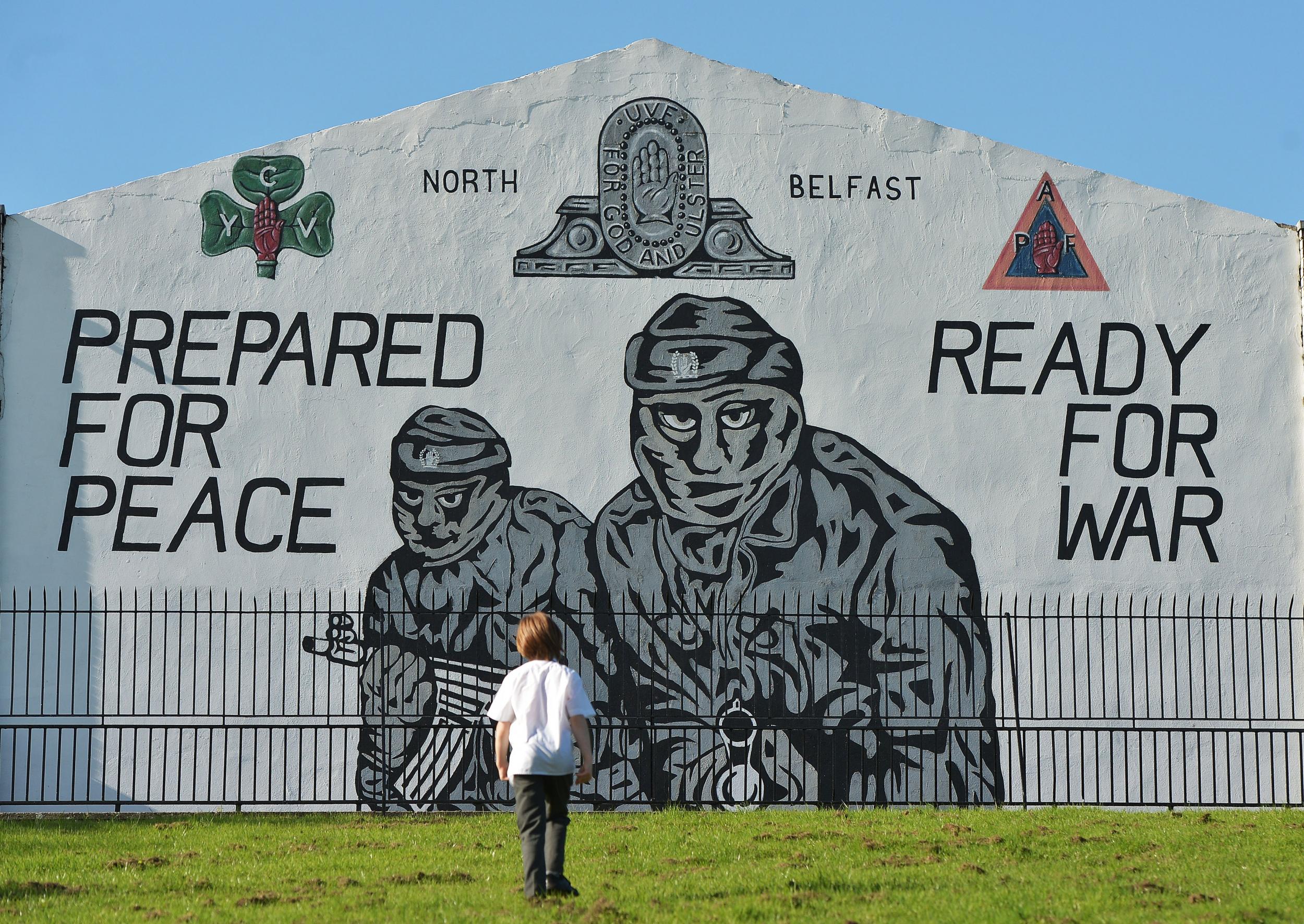Theresa May is risking peace in Northern Ireland to pursue the anti-human rights agenda of her Little Englanders
Due to the legacy of the Troubles, Northern Ireland has more immediate need than anywhere else in the UK for a robust human rights framework – after all, human right abuses continue here to the present day


The Government could scarcely be doing more to destabilise and alienate Northern Ireland if it tried. As Theresa May’s Cabinet lurches from one post-Brexit crisis to the next, the Prime Minister’s approach is very damaging for the least understood and most maligned corner of the UK.
The region is used to being an afterthought in announcements and mere footnotes in major policy briefings, so it is perhaps best to assume the Government’s serious errors are due to ignorance of Northern Irish politics rather than deliberate malice. However, regardless of intention, May shows little understanding of how her actions impact on Northern Ireland.
The Prime Minister looks set to plough ahead with her predecessor David Cameron’s plans to scrap the Human Rights Act and withdraw from the European Court of Human Rights – despite the fact that politicians, policy experts, victims of the Troubles and human rights groups have warned that to do this would breach the Good Friday Agreement. A legal bid to try and stop the Prime Minister proceeding is now “very likely”, The Independent learned this week.
The Agreement, which was voted on in referenda in Northern Ireland and the Republic of Ireland before being lodged as an international treaty with the UN, is one of the most significant pieces of legislation in the UK. It was signed after decades of bitter division and bloody disorder. And yet May seems happy to consider it mere collateral damage in her bid to make her party the champion of little Englanders. This is short-sighted and risks the return of serious political unrest in Northern Ireland.
Due to the legacy of the Troubles, Northern Ireland has more immediate need than anywhere else in the UK for a robust, legal human rights framework. Murder inquiries into alleged human rights breaches by paramilitary groups and the British government during the Troubles are continuing to this day, decades after the crimes were committed, as the region pieces together the past and learns from it to secure a stable future.
Just this month, prosecutors revealed they were considering whether to charge Bloody Sunday soldiers who shot dead innocent civilians in Derry in 1972. A group known as the Hooded Men are also seeking legal action after they allege they were tortured by the British Army in 1971.
Human rights abuses continue in Northern Ireland in the present day. Notably, the abortion ban makes it a criminal offence to have a termination and women can receive life in prison for murder if they do. A 21-year-old woman was tried and convicted there as recently as April this year. The ban has been ruled by Belfast High Court to be a breach of international human rights law. Yet local politicians, emboldened by British silence on human rights, have kept the ban. As the desperate and degrading situation continues, a challenge from international human rights bodies is Northern Irish women’s only hope of changing the law.
There have been other political gaffes. Last week, in a move of characteristic short-sightedness, Communities Minister Sajid Javid announced he is considering a British values oath for public sector workers. Such a move would be deeply damaging and divisive in Northern Ireland, where many Unionists (predominantly members of the Protestant community) identify as British and many Nationalists (predominantly members of the Catholic community) reject a British identity and instead identify as Irish.
Northern Ireland has been ignored for successive Governments since Tony Blair left office in 2007, but the matter is spinning out of control in the aftermath of the EU referendum. Despite sharing a border with another EU country and only recently emerging from a peace process after decades of conflict, Northern Ireland has hardly featured at all in the debates over Brexit.
More than six months after the UK voted to leave the EU, Northern Ireland’s future still lies in Brexit limbo. Whether a deeply controversial physical border will now have to be erected between the North and South of Ireland still remains unknown, as does the future of EU “peace money” which funds cross-community projects to bring disadvantaged Catholic and Protestant people together.
Northern Ireland cannot simply be an afterthought for Theresa May. Whether she is demonstrating reckless disregard or outright ignorance, her policies are not only insulting or damaging but, in the case of human rights reform, they appear outright illegal.


Join our commenting forum
Join thought-provoking conversations, follow other Independent readers and see their replies